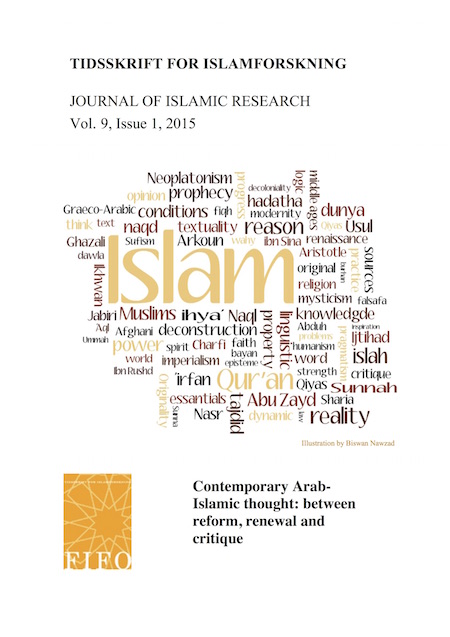Under the Gaze of Double Critique: De-colonisation, De-sacralisation and the Orphan Book
DOI:
https://doi.org/10.7146/tifo.v9i1.25346Keywords:
Double critique, Abdelkébir Khatibi, decolonisation, orientalismAbstract
Instead of the orientalist reformist paradigm as frame and episteme, Khatibi proposes a theory of double critique, critical liminality that targets, in a bi-directional movement, a Eurocentric or Orientalist discourse and an ethnocentric local discourse. Three critical concepts, constitutive of the theory of double critique: decolonisation, desacralisation and the orphan book are operative in Khatibi´s analysis of Orientalism, identity, and the issue of origin. As a professional outsider, Khatibi follows conceptually and methodologically the rules of the epistemological critique in an enunciation of negotiation, not of negation; a site of hybridity.Downloads
Published
2017-02-05
How to Cite
Sabih, J. A. (2017). Under the Gaze of Double Critique: De-colonisation, De-sacralisation and the Orphan Book. Scandinavian Journal of Islamic Studies, 9(1), 79–108. https://doi.org/10.7146/tifo.v9i1.25346
Issue
Section
Articles: Thematic section
License
Scandinavian Journal of Islamic Studies publish under creative commons license BY-NC-SA.





